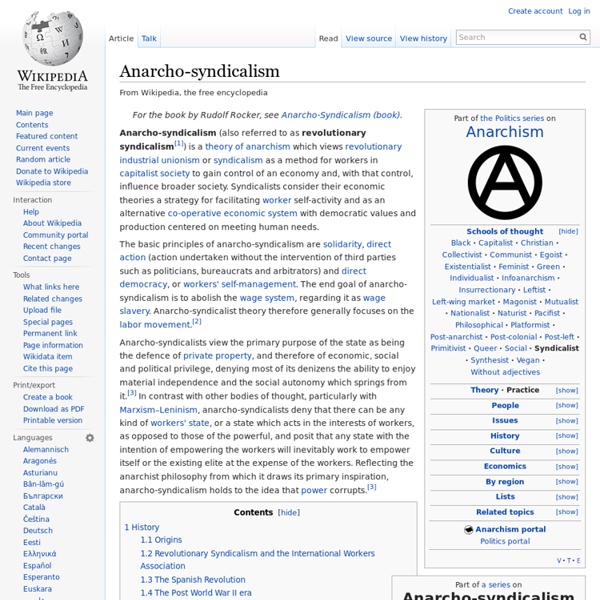Che cos'è l'Accelerazionismo? - Introduzione al tema e discussione dei fondamenti filosofici
NB: Tutte le traduzione dei testi in inglese sono dell’Autore. L’immagine è di Rick Hadley / Flickr La teoria definita Accelerazionista è oggi uno dei temi più dibattuti e controversi dell’intero panorama filosofico contemporaneo. La sua portata è inoltre così ampia da eccedere quelli che sono i naturali confini della scena filosofica in se stessa, tale da investire svariati campi dello scibile umano, come quello economico, tecno-scientifico e politico.
Zomia, là où l’État n’est pas
Recensé : James C. Scott, Zomia, ou l’art de ne pas être gouverné, Paris, Seuil, trad. Nicolas Guilhot, Frédéric Joly, Olivier Ruchet, 2013 [2009], 27 €. [The Art of Not Being Governed.
Zomia (geography) - Wikipedia, the free encyclopedia
This article is about geographical and cultural use of the name Zomia. For genus of moth in the family Geometridae, see Zomia. A map of Zomia. Zomia is a geographical term coined in 2002 by historian Willem van Schendel[1] of the University of Amsterdam[2] to refer to the huge mass of mainland Southeast Asia that has historically been beyond the control of governments based in the population centers of the lowlands.[3] The name is from Zomi, a term for highlander common to several related Tibeto-Burman languages spoken in the India-Bangladesh-Burma border area.[4]
Society Against the State
Society Against the State Pierre Clastres (an excerpt from Clastres' Society Against the State) Primitive societies are societies without a State. This factual judgment, accurate in itself, actually hides an opinion, a value judgment that immediately throws doubt on the possibility of constituting political anthropology as a strict science. What the statement says, in fact, is that primitive societies are missing something - the State - that is essential to them, as it is to any other society: our own, for instance.
Bifo speaks
*If you’ve never heard of “Bifo” Berardi, you might want a look at this, because he’s in top form here; this is about as Bifo as it gets. Beyond the Breakdown Three Meditations on a Possible Aftermath Franco “Bifo” Berardi All of a sudden, what we have been thinking for the last fifty years has to be rethought from scratch. Thank god (is god a virus?)
Il potere venerato per la sua impotenza: Pierre Clastres e l’(an)archeologia “selvaggia” del politico – S&F_scienzaefilosofia.it
Non c’è alcuna legittimità intrinseca del potere e, a partire da questa posizione, il percorso consiste nel chiedersi che ne è del soggetto e dei rapporti di conoscenza, dal momento che nessun potere è fondato di diritto o per necessità, dato che ogni potere poggia sempre e solo sulla contingenza e sulla fragilità di una storia, che il contratto sociale è un bluff, che la società civile è una favola per bambini, che non c’è alcun diritto universale, immediato ed evidente che sia in grado di sostenere dovunque e sempre un rapporto di potere, qualunque esso sia.Foucault Il posto di Pierre Clastres (o del fantasma dello “Stato”) Si chiama stato il più gelido di tutti i gelidi mostri. Esso è gelido anche quando mente; e questa menzogna gli striscia fuori di bocca: “Io, lo Stato, sono il popolo”[1]. Il potere può davvero essere non-coercitivo?
Deleuze and the Accelerationsists
It is the development of an immanent set of criteria along with an immanent political project, which accelerationism claims as its starting point, that allows us to see the guiding thread between Deleuze’s use of Nietzsche, Deleuze and Guattari’s political project in Anti-Oedipus, and the current Left accelerationists. We are expected, in the name of Deleuzoguattarian anti-fascism, to embrace capitalism as nihilist machine that has no ‘purpose’, because ‘purpose’=fascism, while forgetting that neoliberalism appeared in Germany as the form of governmentality that would immunize us against fascism by trading the political for the economic. —Benjamin Noys, ‘The Grammar of Neoliberalism’ Not to withdraw from the process, but to go further, to ‘accelerate the process’, as Nietzsche put it: in this matter, the truth is that we haven’t seen anything yet. —Deleuze and Guattari, Anti-Oedipus Accelerationism and its Critics
Accelerationism
Political philosophy In political and social theory, accelerationism is the idea that capitalism, or particular processes that historically characterised capitalism, should be accelerated instead of overcome in order to generate radical social change. "Accelerationism" may also refer more broadly, and usually pejoratively, to support for the intensification of capitalism in the belief that this will hasten its self-destructive tendencies and ultimately lead to its collapse.[1][2] Some contemporary accelerationist philosophy starts with the Deleuzo–Guattarian theory of deterritorialisation, aiming to identify and radicalise the social forces that promote this emancipatory process.[3][clarification needed]
The Art of Not Being Governed
Argument[edit] For two thousand years the disparate groups that now reside in Zomia (a mountainous region the size of Europe—2.5 million km2—that consists of portions of seven Asian countries) have fled the projects—slavery, conscription, taxes, corvée, epidemics, and warfare—of the nation state societies that surround them.[2][4] This book, essentially an “anarchist history", is the first examination of the huge literature on nation-building whose author evaluates why people would choose deliberately remain stateless. Scott admits to making "bold claims" in his book, but credits many other scholars, including the French anthropologist Pierre Clastres and the American historian Owen Lattimore, as influences.[3] See also[edit]



